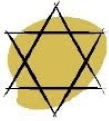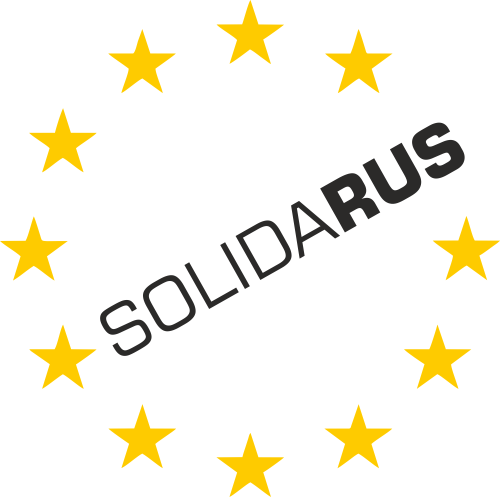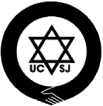Russia’s Greatest National Security Threat: a 70-year-old Grandmother
Who is Valentina Ivanovna Baranovskaya?
Valentina Ivanovna Baranovskaya is a 70-year-old retiree,and a devout Jehovah’s Witness from the Russian city of Abakan. In the Spring of 2019, Valentina and her son Roman Baranovsky were arrested and charged under the Article 282.2, part two of Criminal Code of the Russian Federation—participating in an outlawed organization. In reality, they are persecuted simply for being Jehovah’s Witnesses. Their trial began on April 10, 2019, and they have been incarcerated since February 24, 2021.
The arrest and trial of Baranovskaya are outrageous in cruelty and senselessness. In the face of the Kremlin’s hostility toward the Jehovah’s Witnesses, Baranovskaya has courageously remained an active member in her community and had not denounced her believes. Baranovskaya has maintained her innocence, and articulately defended her stance in court.
Though the Kremlin purports to support freedom of religion and expression, the arrest of Baranovskaya and her son, and the general attack on Russia’s Jehovah’s Witnesses prove otherwise. In 2017, the Kremlin labeled the Jehovah’s Witnesses as extremist, and banned them from organizing in the Russian Federation. Since then, hundreds of Jehovah’s Witnesses have been prosecuted and arrested for no other crime than professing their faith. Baranovskaya was 69 years-old at the time of her arrest, and was the first female Jehovah’s Witness to be arrested.
Valentina Baranovskaya was born in 1951, and was raised alongside her brother and sister in the village of Vannovka. She would become a Jehovah’s Witness only later in life, and as a child was raised in a communist home. By 1973, she graduated from university, and a year later, had her son, Roman Baranovsky. Before her retirement in 2006, Baranovskaya worked as an accountant.
Her religious transformation began in 1995, when she and her son started to read the Bible together. For her, the most important motif from her readings was the emphasis on eternal truth. These readings ultimately led the two to become Jehovah’s Witnesses. Valentina Baranovskaya is known for her creativity, warmth, and hospitality, making her trial and verdict even more difficult for her friends and family to comprehend.
Case Background
On April 10, 2019, Investigator A. V. Pachuev opened a criminal case against Baranovskaya and her son. Armed authorities barged into Baranovskaya’s home to arrest her for being a member of a banned religious group. They demanded to search her home for “extremist” content. She obliged.
In February 2021, Judge Elena Scherbakova of the Abakan City Court, sentenced Baranovskaya to two years in prison for participating in religious activities as a Jehovah’s Witness, and sentenced her son, Roman, to six years in prison. He was charged for organizing group activities. Officially, she was found guilty of violating Article 282.2 of the Criminal Code of the Russian Federation, which charges an individual for being part of a banned organization. According to a document published on February 24, 2019, by the official Investigation Department of the Republic of Khakassia, Valentina Baranovskaya and Roman Baranovsky were later both found guilty under Part 1 and Part 2 of Article 282.2 of the Criminal Code of the Russian Federation.
On February 20, 2020, Valentina Baranovskaya maintained her innocence, and refused to plead guilty to being a part of an extremist organization. Baranovskaya stated that she was simply practicing her religious beliefs without harming or imposing her beliefs on others, which is a protected right under the Russian Constitution. Moreover, she stated that the charges filed against her are themselves unlawful and invalid, as they deny the rights granted to her by the Russian Constitution.
Baranovskaya then made a public statement arguing that despite the Jehovah’s Witnesses of Abakan being a banned group, every individual has the right to practice their religion freely, as stipulated by Article 28 of the Russian Constitution. She added that there was nothing “extremist” about singing religious music, reading the Bible, and believing in God. In February, there were some efforts by prosecutors to increase her and her son’s sentences, by increasing Baranovskaya’s sentence to 5 years, and her son’s sentence to 8 years. In later court appearances, both Valentina and Roman argue that despite searching their home, authorities were unable to provide any evidence of the two owning prohibited literature or fundraising for the organization.
Valentina Baranovskaya and Roman Baranovsky tried to appeal their case. On May 24, 2021, the Supreme Court of Khakassia rejected their appeals, and maintained Baranovskaya’s two-year sentence, and Baranovsky’s six-year sentence. On September 9, 2021, Valentina’s lawyer visited her in prison. Despite her tragic situation, health problems, and fatigue, he noted her warm attitude and her attention to the other inmates. She helps them clean the facility and has a positive effect on the other inmates. He noted her intentions to apply for parole. Unfortunately, her application was denied this October.
The shock of the arrest and conditions of her incarceration have severely endangered Valentina Baranovskaya’s health. On July 8, 2020, Baranovskaya fell ill, and was examined by a medical team. An ER doctor ordered an ambulance to take Baranovskaya to the hospital for emergency care and prescribed medication. A few days later, on July 20, 2020, she had an ischemic stroke.
Baranovskaya often relies on her son Roman for help and emotional support, but the two have been separated and assigned to different prisons. She is currently located in colony no. 28 in Ust-Abakan, while her son is in colony no. 3 in Chita—1,500 miles away. Her appeal filed in October 2021, citing her medical problems, was rejected by courts who refused to relocate her or to shorten her sentence. Separating Valentina Baranovskaya from her primary caretaker in her ill health is especially sadistic, and shows a complete disregard for compassion and human rights at the hands of the Russian authorities
Reaction
Aside from Jehovah’s’ Witness news sources, alternative Russian media sources, and Memorial, little is said about the unjust arrest and detention of Valentina Baranovskaya. There have been, however, several western sources covering this case. In large part, this is because it would go against the Kremlin’s interests to publicize illegal arrests, and most news sources have little freedom in reporting about the Kremlin’s arrests. Those who speak openly are often subject to heavy fines and harassment due to the Foreign Agents Law. This was a law passed in 2012, essentially created to limit dissent and civil society in Russia by labeling those who disagree with, and question, the current political status quo, as “foreign agents”—a known euphemism for calling someone a spy.
Western news sources, however, do not face such limitations, and can, therefore, write about and criticize unjust arrests in the Russian Federation. The official Jehovah’s Witness website, Radio Free Europe/Radio Liberty, The State Department, Reuters, Washington Post, and the United States Commission on International Freedom have all issued reports and statements surrounding the arrest. USCIF Commissioner, Gary Bauer, personally issued a statement on twitter, saying, “Today Valentina Baranovskaya, an elderly woman in poor health, became the first female #JehovahsWitness sentenced to prison in #Russia. This marks a new low in Russia’s brutal campaign against religious freedom.”
Why the Memorial Human Rights Center Recognizes Baranovskaya as a Political Prisoner
- Article 28 of the Russian Constitution claims to support the freedom of religion. Arresting Baranovskaya and her son simply for being Jehovah’s Witnesses, violates the Russian Constitution.
- Article 282.2 bans citizens from being a part of, and taking part in activities led by banned, extremist organizations. Russian authorities often use this article as an excuse to arbitrarily arrest religious minorities, claiming that they are part of an extremist group, when in fact, they are not.
Many political prisoners in Russia are arrested for their religious beliefs. Jehovah’s Witnesses are among the most persecuted religious minorities in the Russian Federation, jailed for their religious beliefs alone. They pose no security threat to the Russian Federation and are cruelly targeted simply for following a form of Christianity which differs from Kremlin-approved Eastern Orthodoxy.













